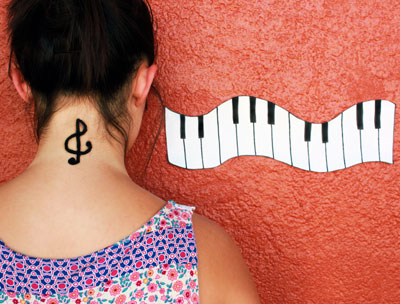All Nonfiction
- Bullying
- Books
- Academic
- Author Interviews
- Celebrity interviews
- College Articles
- College Essays
- Educator of the Year
- Heroes
- Interviews
- Memoir
- Personal Experience
- Sports
- Travel & Culture
All Opinions
- Bullying
- Current Events / Politics
- Discrimination
- Drugs / Alcohol / Smoking
- Entertainment / Celebrities
- Environment
- Love / Relationships
- Movies / Music / TV
- Pop Culture / Trends
- School / College
- Social Issues / Civics
- Spirituality / Religion
- Sports / Hobbies
All Hot Topics
- Bullying
- Community Service
- Environment
- Health
- Letters to the Editor
- Pride & Prejudice
- What Matters
- Back
Summer Guide
- Program Links
- Program Reviews
- Back
College Guide
- College Links
- College Reviews
- College Essays
- College Articles
- Back
Don't (Get) Rape(d) MAG
“Yes, I do the cooking. Yes, I do the cleaning. Yes, you be the boss, and yes, I be respecting.”
Tell me, whom did you envision as you read those lyrics? A man? A woman? These lyrics are uttered by female rapper Nicki Minaj in the song “Hey Mama,” and are directed to a man. The song continues, “Yes, I’ll be your woman. Yes, I’ll be your baby. Yes, I’ll be whatever that you tell me.” Why would Minaj, a self-proclaimed feminist, sing these lyrics that objectify her and women in general? Even more baffling, “Hey Mama” spent six weeks in the top 10 of the Billboard Hot 100.
Another tasteless example is “You Don’t Even Know It” by Rick Ross. In this song, Ross brags about using date rape drugs: “Put Molly all in her champagne, she ain’t even know it. I took her home and I enjoyed that, she ain’t even know it.” Ross and other male rappers like Eminem portray the mistreatment of women as an enjoyable activity. Pop culture influences like these promote the idea of women being subservient to men and contribute to the abuse of women.
Why is rape culture so prevalent in today’s society? The media. And no, not the “evil, liberal media,” as Donald Trump would say, but rather mainstream music, Internet videos, and movies. Young people who are constantly exposed to contemporary media that objectify women do not take sexual assault or abuse as seriously as they should. “The past several years have seen a marked increase in violent, hateful, racist, and misogynist songs, not merely on the market but topping the charts,” writes Kansas Governor Sam Brownback in his article “The Melodies of Mayhem.” This kind of publicity further intensifies rape culture and negatively influences young audiences. As “messages of hate and violence” toward women are marketed to children, it “sends the signal that violence is widespread and normal, that it is acceptable to abuse women, and that there is glamour in lawlessness,” Brownback continues. We must prevent the next generation from seeing rape and abuse of women as commonplace.
Another ironic contributor to our society’s rape culture is school dress codes. Many dress code regulations restrict skirts to certain lengths and tank top straps to certain widths, restricting girls in order not to distract the wandering eyes of their male peers. However, with these rules, schools indirectly teach children that girls’ bodies are the problem and must be covered up. Then when girls wear shorts and a tank top on a blistering 101 degree day, it is viewed as inviting sexual attention. Female rape victims are often blamed for wearing “skimpy” clothing. A Toronto police officer in 2011 even suggested that “there is a causal relationship between clothing and consent and that, ultimately, victims are themselves responsible when raped and sexually assaulted.”
This is ridiculous. Girls do not dress for the purpose of attracting sexual attention. When they put on a low-cut top or a short skirt in the morning, they do it for themselves. They dress to feel comfortable, self-confident, and – God forbid – attractive. It is high time that society recognized that women’s clothing is not an indication of sexual consent.
Rape culture is not a myth. It is perpetuated by many aspects of society, including the media and school dress codes. We as a society must respond with criticism, not censorship. We must raise public awareness of how violent media perpetuates rape culture and hold companies accountable that are producing this media. Moreover, school dress codes must be created that allow girls to attend school without the fear of being ridiculed or shamed. Women deserve to feel comfortable and safe in their bodies, not afraid that someone will exploit them. We must make sure abuse of women is not promoted. We must teach society to not rape rather than to not get raped.

Similar Articles
JOIN THE DISCUSSION
This article has 0 comments.
